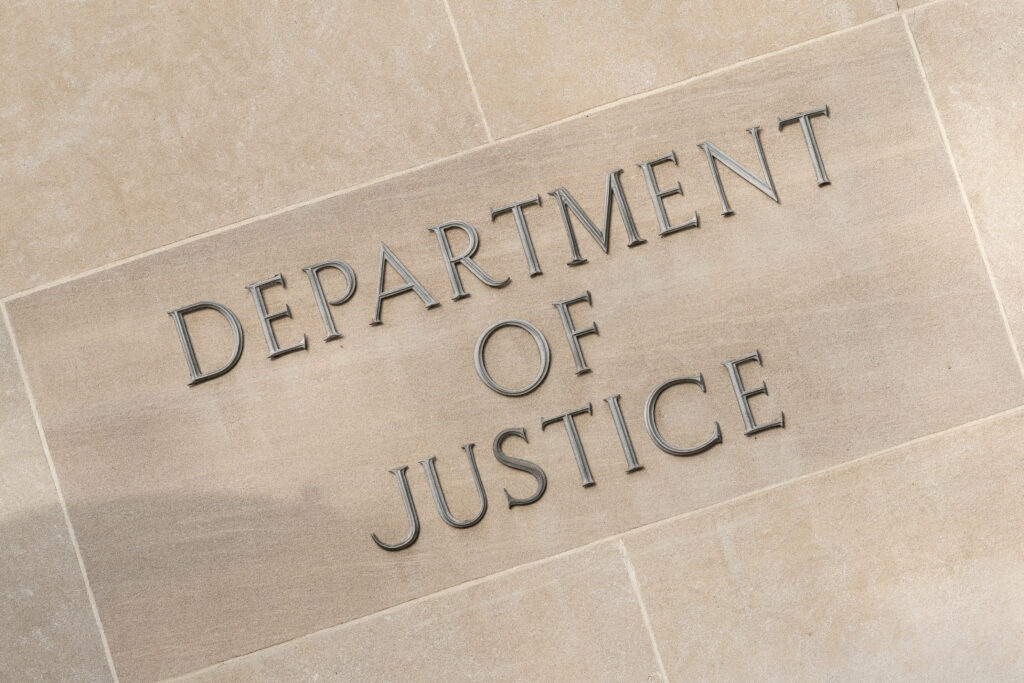DOJ Sues Six States, Escalating Campaign to Seize Private Voter Data

The U.S. Department of Justice Thursday sued six states — California, Michigan, Minnesota, New York, New Hampshire, and Pennsylvania — over their refusal to hand over sensitive voter registration data.
Several of the states fired back within hours, calling DOJ’s move overreach, and stressing the importance of protecting voters’ sensitive data.
The lawsuits mark an aggressive escalation in DOJ’s ongoing effort to force states to hand over their voter rolls and list maintenance records — including individual voters’ sensitive information like address, driver’s license number and partial social security number.
The lawsuits allege that the states are violating the National Voter Registration Act, the Help America Vote Act and the Civil Rights Act by refusing to provide the department with the unredacted data.
“States are required to safeguard American elections by complying with our federal elections laws,” Assistant Attorney General Harmeet Dhillon said in a statement. “Clean voter rolls protect American citizens from voting fraud and abuse, and restore their confidence that their states’ elections are conducted properly, with integrity, and in compliance with the law.”
DOJ has said it wants the data to ensure that states are complying with provisions of federal law that require them to take steps to clean their rolls. But voting experts have said states enjoy broad latitude in how they go about doing that.
In recent months, the chief election officials for the six states, both Democrats and Republicans, have rejected DOJ’s demands, citing both legal and privacy concerns.
Minnesota said Thursday that it had asked DOJ to guarantee it would protect the data, but received no response before the lawsuit was filed.
“In August, our office asked for additional assurances that Minnesotans’ personal information — including their name, birthday, address, last four digits of their social security number, and driver’s license number – would be protected and used appropriately,” Minnesota Secretary of State Steve Simon said in a statement. “The DOJ remained silent — providing no information about how the data would be protected or used. Instead, they chose to file a lawsuit.”
“Our office has always been and will continue to be transparent with the public about the processes in place to protect our elections,” Simon added. “We will also continue to safeguard the private information of millions of eligible Minnesota voters.”
Michigan Secretary of State Jocelyn Benson called DOJ’s request for private voter data “not normal” and said that she repeatedly asked the department about why they want the data.
“Other secretaries of state — both Democrats and Republicans — have also asked them these questions,” Benson said. “They refuse to give us a straight answer. We gave the Justice Department exactly what they are legally entitled to — the public version of Michigan’s voter file. States can and must hold the line. Only state and local election officials — not the president, the DOJ, or any other federal agency — have the right to people’s private voter information.”
California Secretary of State Shirley Weber (D) called DOJ’s lawsuit a “fishing expedition and pretext for partisan policy objectives.”
“The U.S. Department of Justice is attempting to utilize the federal court system to erode the rights of the State of California and its citizens by trying to intimidate California officials into giving up the private and personal information of 23 million California voters,” Weber said in a statement to Democracy Docket. “The lawsuit and intentions behind it are a blatant overreach by the federal government.”
Pennsylvania Secretary of State Al Schmidt (R) called DOJ’s lawsuit “unprecedented and unlawful” and said in a statement to Democracy Docket that he will “vigorously fight the federal government’s overreach in court.”
Last week, DOJ filed nearly identical lawsuits against Maine and Oregon to obtain access to their voter rolls and list maintenance data. The lawsuits were sharply condemned by both states’ election leaders.
“It is absurd that the Department of Justice is targeting our state when Republican and Democratic secretaries all across the country are fighting back against this federal abuse of power just like we are,” Maine Secretary of State Shenna Bellows (D) said in a statement. “I stand by the integrity and professionalism of Maine’s dedicated state election officials.”
Oregon Secretary of State Tobias Read (D) called DOJ’s lawsuits an attempt by President Donald Trump “to use the DOJ to go after his political opponents and undermine our elections.”
“I look forward to seeing them in court,” Read said. “I stand by my oath to the people of Oregon, and I will protect their rights and privacy.”
Sen. Alex Padilla (D-Calif.) said in a statement that DOJ’s lawsuit is about “restricting the right to vote in order to undermine our democracy.”
“Whether it’s combing through personal voter information or threatening to prosecute hardworking election officials, Donald Trump and his Administration will stop at nothing to rig future elections in a desperate effort to cling to power,” said Padilla, a former secretary of state. “Now he’s weaponizing the Department of Justice in a clear attempt to purge eligible citizens from voter rolls in California and other states across the country.”
“This isn’t just about a data request,” Arizona Secretary of State Adrian Fontes (D) said in a statement to Democracy Docket. “It’s about protecting your privacy, your security, and your fundamental right to vote free from unnecessary federal overreach. Once that information leaves our custody, there is no guarantee about how it’s handled, where it ends up, or whether it’s properly secured. To date, there has been no clear legal justification or transparent explanation for these demands.”
Though DOJ has not filed a lawsuit against Arizona, Fontes has forcefully rejected the department’s demand to hand over its voter registration data.
“If Arizona isn’t already on that list, we may very well be next,” he said.